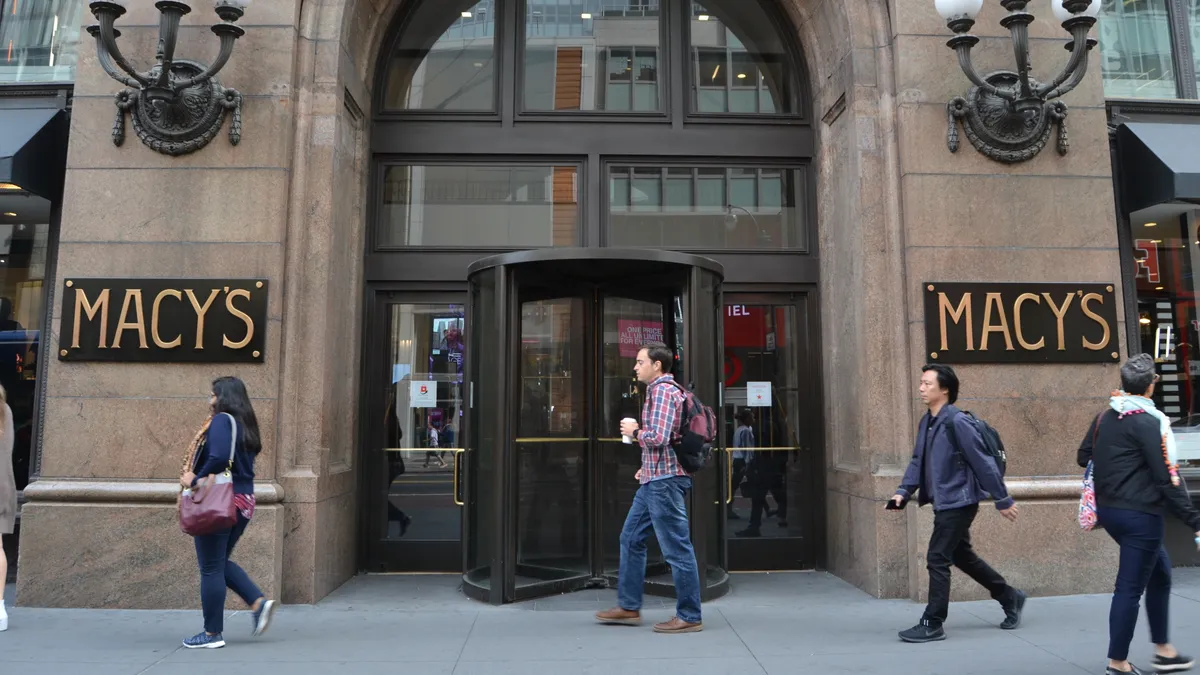Dive Brief:
- Macy's hired Dennis Mullahy as its first-ever chief supply chain officer (CSCO), according to a press release.
- Mullahy comes to Macy's after five and half years in IT and supply chain at Michaels, most recently holding the position of executive vice president of supply chain and IT. He previously worked in supply chain functions at Ulta, Meijer and Accenture.
- "Mullahy will oversee the entire product journey, including global sourcing, inventory management, store and ecommerce distribution, transportation, indirect procurement, supply chain systems, sustainability and supplier diversity. Mullahy will report to Hal Lawton, president of Macy’s," according to Macy's announcement of the hire.
Dive Insight:
The position of CSCO is not terribly common but certainly growing in the retail world as the omnichannel age teaches businesses that the supply chain is often where margins are won and lost. With Macy's hire, the retailer joins the likes of Target, PVH and Blue Apron in creating a CSCO position.
It is not uncommon for the head of supply chain, no matter the title, to report directly to the CEO. Employing the title of CSCO serves as an internal and external signal of the importance placed on supply chain functions.
In the case of Macy's, the functions within Mullahy's purview are being joined together under one executive for the first time. "We created this organization to lead a substantive transformation of our systems, processes and facilities to maximize customer value and achieve a sustainable competitive advantage," a Macy's spokesperson told Supply Chain Dive.
Mullahy has the added benefit of IT experience to help with this transformation — a knowledgebase base increasingly important for supply chain leaders.
Macy's, like other brick-and-mortar retailers and traditional shopping mall anchor stores, is in the midst of a supply chain transformation. The company has rolled out multiple omnichannel strategies and is using RFID to track inventory and enable new store fulfillment models to increase inventory efficiency.
"We are investing in our supply chain to improve our systems, processes and facilities and to enhance productivity and efficiency," Lawton said in a statement.
With half a dozen or so different purchase and fulfillment models from buy-online pick-up in store (BOPIS) to ship-from-store and everything in between, the supply chain needs to have a say in what omnichannel strategies make sense and how customer expectations should be set.
The mindset shift over the past decade or so can be summed up as "customer centric." As e-commerce grows in revenue and importance, retailers are reckoning with the fact that their supply chains serve their customers more so than their stores.














